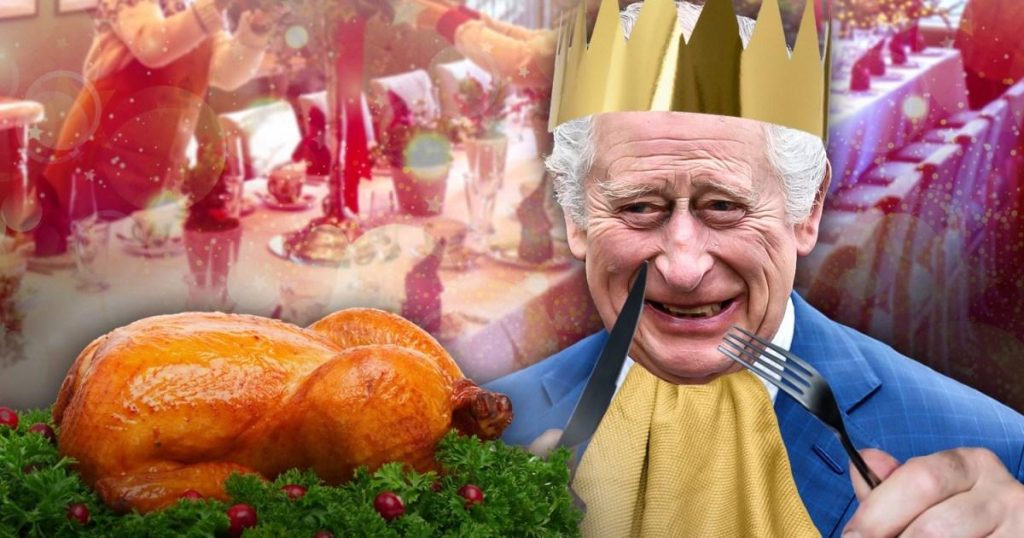King Charles III’s culinary choices at his Highgrove estate reflect a broader societal shift in attitudes towards veganism. Just a few years prior, during the peak of the plant-based movement, Highgrove offered a Christmas menu centered around vegan options, including a pan-fried root vegetable dish as the main course. This aligned with the King’s well-known environmental consciousness and his personal commitment to reducing his meat and dairy consumption. However, the 2024 Christmas menu saw a return to traditional fare, with turkey taking center stage. This shift mirrors a wider trend in the UK, where some businesses have scaled back their vegan offerings due to a perceived decline in demand. The changing landscape of plant-based dining, as exemplified by Highgrove’s evolving menus, offers a compelling case study of the interplay between personal beliefs, market forces, and evolving dietary trends.
The King’s previous foray into plant-based Christmas dining showcased his commitment to sustainable practices. Highgrove’s 2022 festive menu featured a limited selection of meat dishes, emphasizing locally sourced ingredients and plant-based alternatives. This approach aligned with the King’s long-standing advocacy for organic farming and his founding of the Duchy Originals brand, now partnered with Waitrose. The emphasis on “sustainable dishes characteristic of the Cotswolds” and the utilization of Highgrove Gardens’ produce underscored the King’s dedication to environmentally conscious cuisine. While the return to a more traditional menu in 2024 may seem like a departure from this ethos, it’s important to consider the broader context of fluctuating consumer demand and economic factors affecting the food industry.
King Charles has been vocal about his reduced meat and dairy intake, citing its positive impact on his carbon footprint. In a 2021 BBC interview, he detailed his two-day-a-week meat-and-fish-free diet and his one dairy-free day. He emphasized the importance of responsible sourcing and consumption of meat, advocating for grass-fed, high-quality meat consumed less often. He contrasted this approach with industrialized farming practices, highlighting their detrimental environmental consequences. While the King’s personal dietary choices have influenced Highgrove’s menu offerings in the past, the 2024 menu suggests a pragmatic response to changing consumer preferences and market conditions.
The 2024 Christmas menu at Highgrove marked a clear return to traditional festive fare. The star attraction was a ballotine of turkey wrapped in smoked bacon, accompanied by classic accompaniments like sage stuffing, roasted vegetables, and braised red cabbage. Alternative options included sea bream and a vegetarian sage, goat’s cheese, and butternut squash tartlet. The complete absence of vegan mains speaks volumes about the perceived shift in demand. This contrasts starkly with the 2022 menu, which heralded plant-based cuisine. The 2024 menu reflects a strategic decision to cater to the evolving preferences of Highgrove’s guests, possibly in response to the broader market trends observed in the UK.
The decline in veganism’s popularity in the UK, as evidenced by the closure of dedicated vegetarian branches of chains like Pret A Manger and the discontinuation of vegan products at Greggs, provides context for Highgrove’s menu shift. While veganism still maintains a dedicated following, estimated at around 2 million people in the UK, the initial surge in interest seems to have plateaued. This is attributed to various factors, including the cost-of-living crisis and perhaps a degree of “vegan fatigue” among some consumers. Despite these challenges, proponents of veganism, such as The Vegan Society, maintain that it is a sustainable and ethical lifestyle choice with significant environmental benefits. They argue that a vegan diet can reduce an individual’s food-related emissions by up to 75% and emphasize that the plant-based sector remains resilient and poised for future growth.
The evolving Christmas menus at Highgrove provide an intriguing snapshot of the fluctuating popularity of veganism and the broader trends influencing dietary choices. While the King’s personal commitment to reducing his environmental impact through dietary choices remains evident, the shift back to a traditional turkey-centered Christmas meal suggests a pragmatic response to market forces and changing consumer preferences. This does not necessarily indicate a diminished commitment to sustainability but rather a recognition of the need to balance personal values with practical considerations. The case of Highgrove’s menus underscores the dynamic nature of the food industry and the ongoing dialogue surrounding sustainable food practices. The story also highlights the influence of high-profile figures like King Charles in shaping public awareness about food-related environmental issues, even as their own choices adapt to the changing times.


